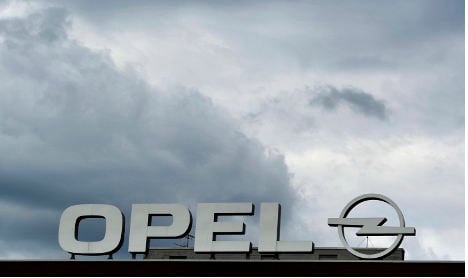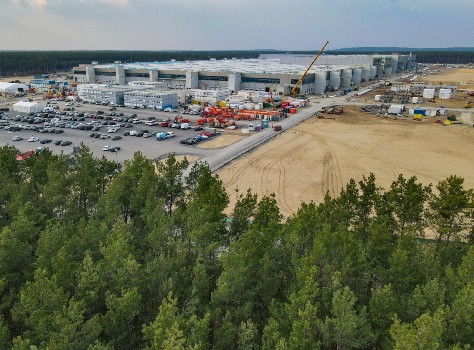Workers council chairman Rainer Einenkel said Saturday that the US automaker should “deny it has any plans to sell, with no ifs or buts,” adding “soft statements help neither the employees nor the reputation of our product.”
His demand follows several days of rumours and media reports that the Detroit auto giant is contemplating selling off Opel.
German automotive magazine Auto Bild, citing unnamed sources, reported Thursday that General Motors executives were frustrated that Opel is still making a loss and were looking at the possibility of selling it. Der Spiegel reported that Volkswagen and a Chinese carmaker were being considered as possible buyers.
Opel has major plants in Rüsselsheim, near Frankfurt, as well as in Bochum, Eisenach and Kaiserslautern. As recently as May, the company and workers representatives in Bochum had agreed on a plan to reduce the payroll by 1,800 jobs, as part of GM’s overall plans to cut employment at its European units by some 8,000.
Chancellor Angela Merkel has voiced her concern about the rumour and asked GM to clarify its plans for its German-headquartered European unit. According to her spokesman Steffen Seibert, the reports were “upsetting” for Opel’s hard-working employees. “They deserve that their performance be appreciated and that they be given some security about the future,” he said Friday.
In 2009 GM had put Opel up for sale but withdrew from a deal with Canadian-Austrian auto parts maker Magna at the last minute.
On Saturday Die Weltnewspaper cited unnamed company sources as saying China’s Beijing Automotive Industry Holding Co (BAIC), among the bidders in 2009, had approached GM’s management with an offer. Advisers close to BAIC, however, told Reuters news agency that no formal offer had been made.
BAIC President Wang Dazong, an engineer who spent 20 years working at GM, has said the company is aiming to expand outside its Chinese home market.
The Local/DPA/smd



 Please whitelist us to continue reading.
Please whitelist us to continue reading.
Member comments